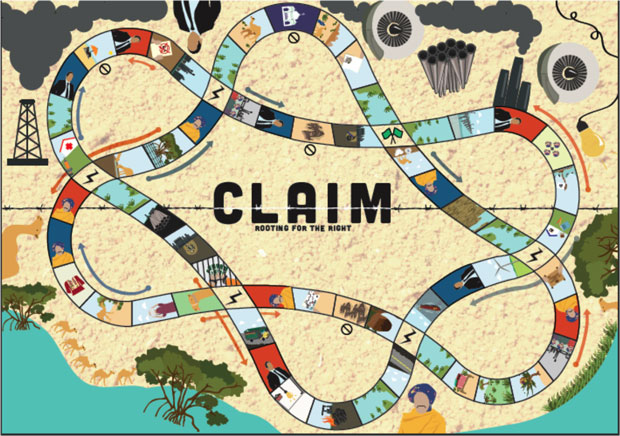Philosophy
At Srishti, Culture Heritage and Conservation draws on inter-disciplinary approaches to explore and engage in urban, social and environmental issues. In a scenario of rapid urbanization and the quest for Sustainable Development, we promote engaging with complex contexts, navigating through urbanization, ecology, economics, equity, politics, society, acknowledging their intricate interdependencies, and their governance and management. In doing so, we aim to redefine conservation to include traditions, livelihoods, art and culture and to explore ideas for constructing inclusive and sustainable places
The programs focus on project-based learning, using design thinking and studio practices, giving students tools and processes to explore and interpret diverse ecosystems, unique landscapes and cityscapes with a focus on sustainability and environmental awareness.
The Studios bring together students from different disciplines to work collaboratively in delivering varied set of solutions for relevant urban issues.

Examples of Projects:
Hoysala Heritage Project
The project is part of a larger regional heritage-planning project called the Hoysala Heritage Trail, largely managed by UNESCO with the support of the Karnataka Tourism Department.
Furniture & Interior Design students re-designed three of the identified old homes as home stays and two old homes as Boutique Hotels. They also designed and developed furniture prototypes for the homes, being sensitive to the heritage of the place and also bringing in a sense of modernism. There were various concepts based on costs. The Textile Design and Foundation Studies students designed home accessories and collections of printed textiles for the home-stays and boutique hotels. The Visual Communication students worked on developing maps, travel guides and signage for the region.
City Waste: Intensive workshop on community, culture, and garbage in Bangalore
– a SUI Columbia – Srishti Project
A group of M.Arch. students from Columbia University directed by Prof. Jyoti Hosagrahar and in collaboration with faculty and students from Srishti Institute of Art Design and Technology in Bangalore spent an intensive week studying waste in Bangalore and proposed interventions for two challenges:
Design Challenge 1: Improving and enhancing Dry Waste Collection Centers (DWCC): Bangalore is in the process of establishing a DWCC in each of the 198 wards.
Design Challenge 2: Designing dry waste collection for small markets, streets and improving the design of fruit and vegetable markets: Bangalore’s numerous dense market streets with small commercial establishments need to have an effective system of waste collection.
Columbia University Students developed modular designs for space optimization in the DWCCs, design of a waste segregation kiosk, and a redevelopment proposal for Madiwala Market in Koramangala, Bangalore. Srishti students developed exhibition posters for the Wake Up Clean Up exhibition of BBMP to help create awareness of waste segregation issues, mapped waste disposal, collection, and recycling practices in Yelahanka neighborhoods including businesses.
They designed brochures, pamphlets, icons, print collateral promoting which explained waste segregation, and created a website of recycling resources.
All of the designs have been presented to the members of the Solid Waste Round Table of BBMP and the BBMP Commissioner.
Visualizing Cultural Heritage
, Railway Staff College, Vadodara, in collaboration with SUI, and the Ministry of Railways, Government of India, 2012
Students of Srishti along with a conservation architect from SUI and a faculty member from Srishti travelled to Vadodara and conducted a study and documentation of the heritage character of Pratap Vilas Palace building and property that is currently being used as a Railway Staff College. The students did a detailed study of the building and property, the recent modifications and updated existing building plans of the property. They also completed a photo-documentation of its heritage elements, and researched historical material on the development of the structure in the archives and records of the RSC Vadodara.
Ella Hosa (Everything New) - The Dry Waste Project
It involves a community empowerment project where Srishti will work with the local communities to establish sustainable practices for waste management. The project was based on an invitation by 2 main groups - Hasirudala and the Solid Waste Management Round Table (SWMRT).
The first, Hasirudala is an NGO that is currently mobilizing and organizing the informal sector of waste-pickers into an organized door-to-door collection service whose expertise in waste segregation are incorporated into the BBMP’s plans to localize dry waste collection in Bangalore.
The second, SWMRT is a consortium of NGOs who are active in promoting waste management operations around the city. Upon the advice of the SWMRT the BBMP plans to build one Dry Waste Collection Centre (DWCC) for each of the 198 wards in Bangalore
The deliverables included:
1.Executing a mural for the Centre wall that can later be duplicated at other centres around the city.
2.Designing information posters for waste segregation.
3.Designing a viable space for efficient waste segregation at the DWCC.
